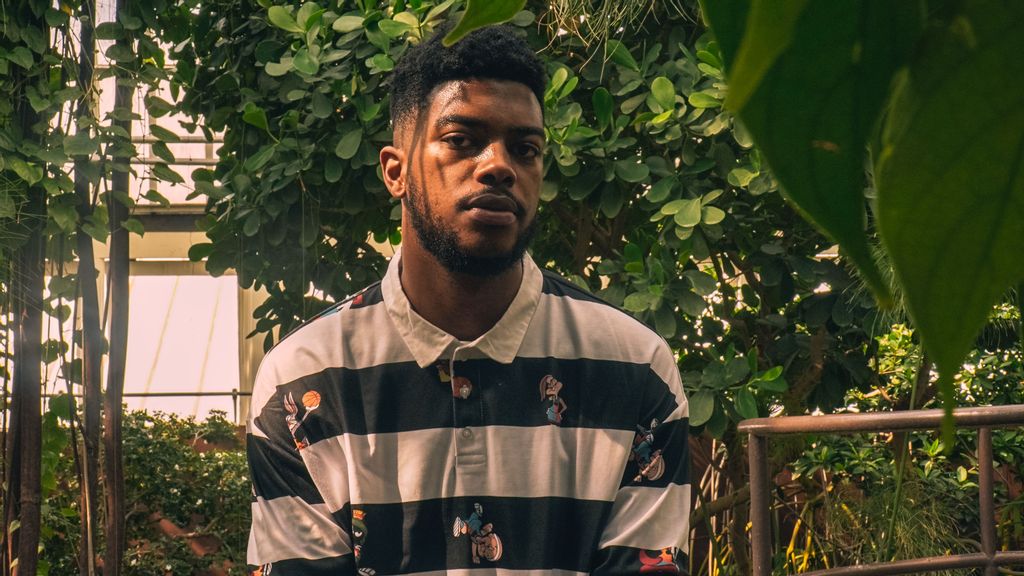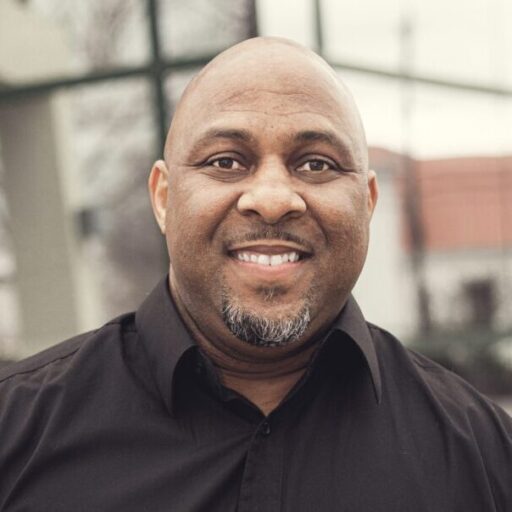
Chicago soul singer B. Lilly is using his music to raise awareness of the worries and fears black mothers have over what their sons face every day when they step out the door. His new single, “Dear America” is part of his campaign to spread his message to America. He also works with the BUILD Chicago nonprofit to help youths on Chicago’s west side. By providing kids with a community center stocked with musical, recreational, mental health and skill-development resources, the center’s goal is to occupy their time and keep them off the streets.
Zenger caught up with B. Lilly to discuss his musical plans, the importance of mentorship in Chicago, as well as the work he’s doing with BUILD Chicago.
Percy Crawford interviewed B. Lilly for Zenger.
Zenger: How is everything going?

B. Lilly: I can’t complain, man. I’m happy to be alive, be here and to be doing good work.
Zenger: Your “Dear America” project blew up. Did you expect that type of reaction when you were releasing it to the public?
B. Lilly: I’m going to be honest and say, when I first wrote it, I knew that it had a lot of potential, just because of the message. A message to the nation, a message to share a perspective of the black mother and the black experience. I hoped that it would do good things, but if I had known that we would be doing a whole campaign and project around it within the first year, I can’t necessarily say that I would’ve believed that. So, I’m definitely grateful that it’s picking up steam.
Zenger: Was this a conversation you had with your mother, other mothers or just giving your thoughts from a black mother’s perspective?
B. Lilly: It started with a conversation that I had with my mother, and I actually interviewed a handful of black mothers of all ages. I put a post on Facebook that said, “Hey, I’m working on this project, I’m working on this song, and I would love to talk to black mothers to do it.” Just to give some perspective, I studied anthropology in college. So, it’s actually a part of my practice to conduct interviews and do stuff like that, so it felt good to apply that to my music, and to be able to write this song.
Zenger: I recall watching an interview with Tupac’s [Shakur] mother. She talked about how emotional she got when he performed the lyrics for his song, “Dear Mama,” for her while in jail. What was your mother’s reaction to “Dear America?
B. Lilly: My mom was definitely emotional, definitely speechless when she first heard it. That first verse is totally telling a story of my family. Me, my mom and my father. I said it in the song, “We were living in the basement with nothing in the kitchen, just a young family trying to make it, finding hope in the cracks in the pavement.” So she was definitely touched and moved by it. She is really just happy that I’m deciding to make meaningful music. I think that’s what she’s most proud of.
Zenger: Can we expect more music to follow, “Dear America?”
B. Lilly: Yeah, “Dear America” is a part of six songs that I recorded when I first returned from college. I graduated from college in 2018 and got my career going. I recorded this EP that I do plan on releasing really soon. I’m excited about people hearing my EP, and really just me tapping into my sound. I continue to explore and discover and tap into my artistry and connect all the dots. I want to give the people more content.
Zenger: Musically from your generation, Chicago is looked at in such a bad or dark light. Is it your mission to change that perception?
B. Lilly: Man… that’s a big thing for me. The second song that I released in my career, I was 19 years old, and it’s actually called, “Chicago.” It was my ode to the city. Just explaining how I want to deconstruct the narrative. We been losing too long. We got a lot to prove when it comes to getting people to understand that this is a beautiful city with beautiful people.
It’s more than just Chiraq [a nickname that combines Chicago and Iraq]. I personally hate that stigma and I hate that language. It’s important for me not only to do that in my artistry, but for me to play a role in showcasing other artists as well that have the same message and the same drive to do the same thing.

Zenger: You mentor kids in the public school system, you are a part of a commission that works with the mayor. How do you find a balance between your philanthropy work and your music career?
B. Lilly: Dude honestly, I feel like that is something that I’m learning every day. I’m really big on faith, and I feel like everything that I’m doing is a part of whatever assignment God has for me. I just try to trust him and take it one day at a time. He’s proving to be everything that I need in balancing it all. This is part of my life work, so it really doesn’t feel like work. I feel like this is what I’m supposed to be doing, so I make sure that I’m present in every moment and just serve the best that I can.
Zenger: I think every young man needs some type of mentoring figure in their life. In a city like Chicago, that seems to be imperative these days, and you serve as one.
B. Lilly: Mentorship is very important. I come to realize that at a very young age. Having so many amazing people to look up to in my life, representation is everything. You have to see it in order for it to be tangible. In terms of being a mentor to kids in the city, it’s definitely important and it’s also rewarding. Any time I get an opportunity to pour into these young people, they pour right back into me; just by me being able to look into their eyes and seeing how hopeful they are for the future. Hearing their hunger to change the narrative and hearing their dreams makes it all worth it for me.
Zenger: How did you avoid getting caught up with the wrong crowd?
B. Lilly: I’m really blessed, bro. I come from a two-parent home, so I had a lot of stability in my household. My dad is a minister, my mom is an educator, a daycare owner. … So, I was able to be in a stable environment and be sheltered. I went to a private school where they really valued getting a quality education, so I had to take education seriously. … I was in an environment where it was cool to be smart. I feel like all of that played a role to me being focused on getting my education, focused on my craft, my gifts and my future. That carried me through life and gave me the foundation that I needed and that I still stand on to this day. It gave me the faith and courage to move forward.
Zenger: Before you go, tell us about, BUILD Chicago and the things you guys are doing.
B. Lilly: I’m actually in the office right now. To give a little context, I am currently the music education coordinator. They brought me on about two weeks ago to help create a curriculum and build programs for the youth in my community. … On Aug. 12, we’re having a groundbreaking ceremony. … This community center will serve the community in so many ways. We’re going to have a studio, an auditorium, a performance arts center; we’re going to have spaces for kids and community members to get mental health services. We will have a gymnasium with track and field, and a lot of other rooms and spaces for the community to utilize in the ways that they need them. We’re going to have a garden and a café. Everything that I’ve always dreamed of having in terms of a center right here on the west side of Chicago. … I’m so excited.
Zenger: Continue to inspire and please stay active in your community. Looking forward to big things from you, brother. Do you need to add anything else?
B. Lilly: This was great, man. I’m looking forward to everything that’s coming, and to be in the loop with the things that you’re doing. This was a boost for me and I’m super excited to move forward, and I hope that we can do things in the future.
Edited by Judith Isacoff and Matthew B. Hall
The post The Powerful Message Behind B. Lilly’s ‘Dear America’ Campaign appeared first on Zenger News.
